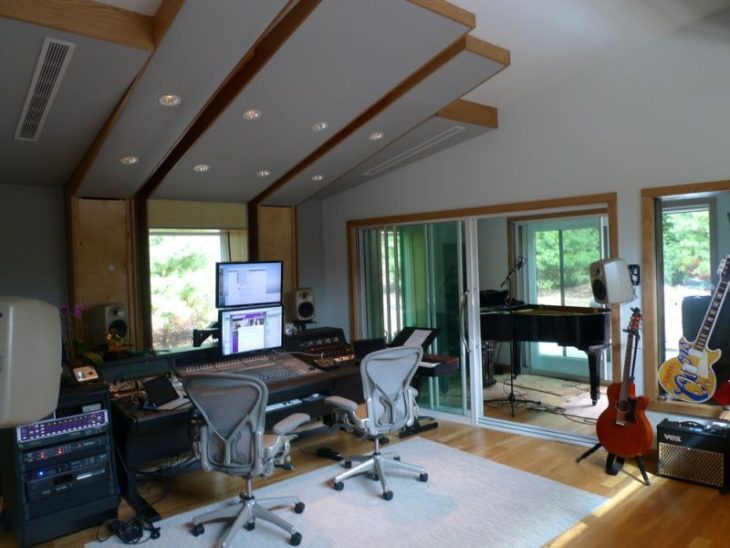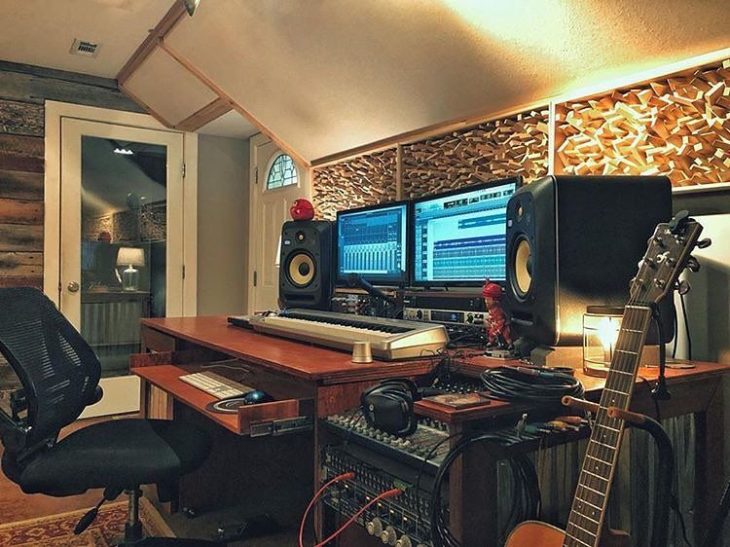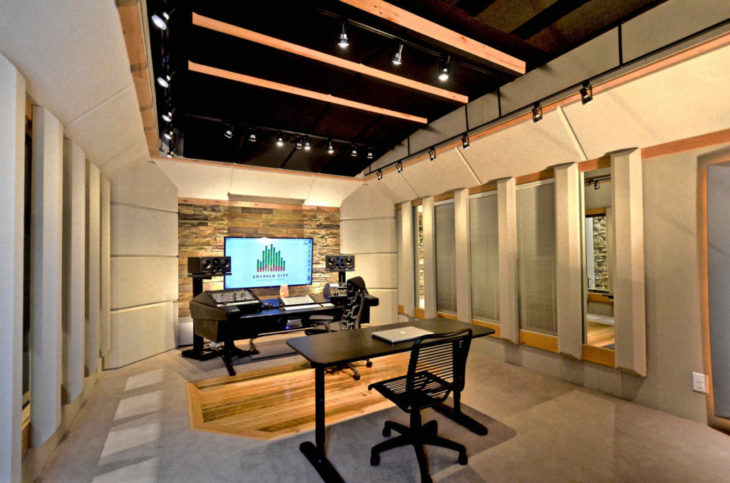Being able to work from home is amazing. You have freedom, liberty and you are still able to get the job done without worrying about tight office space. Being a musician or being part of that business can be really stressful if you don’t have your own recording studio. Renting a studio is always an option, but most of the time, you have to wait for available time and date and the equipment sometimes can be damaged. Because of that, having a home music recording studio is a great idea.
Not many people are aware that they can build their own studio at home and that they can repurpose an already existing room. If you choose to build a recording room you will be able to work from home, get the job done faster and you will be sure that the equipment you are using is good.
For this project, you will need a lot of patience, some time and a budget. To help you with it, we created this guide. Follow it to learn about the main things you are going to need for it. Make sure to talk with experts as well, as they can give you some extra tips.
Which room is the best one?

Source: Pinterest
Many people think that you can choose any room to build the studio, but that’s not entirely true. First things first, you need a bigger room. That way you will have enough space for all the musicians and equipment. Plus, the bigger the room, the better the sound.
Rooms that have low ceilings or are made of drywall are not good for recording studios. If you can, you need to choose the biggest room in your house, or if you have a basement, you can use it for your studio.
The next thing you need to think about is the outside noise. If there is a street nearby, or if you live in a place where there are a lot of birds, that can mess up the quality of the recorded sound. Because of that, you need a room that will be protected from all the outside noise. Sound isolation is needed to protect your recordings as well as the neighbors.
When you build the room, make sure you install the right floors. Choose hardwood or tiles so that the carpet won’t wear off. Also, if you install a carpet, it will absorb some of the sounds and that will make the acoustics worse. You can put rugs where the drums should be, or use them for any equipment that needs a softer floor.
Equipment

Source: Pinterest
As you probably already know, there are a lot of things you may need. However, you don’t need to get everything at once. There are some vital things that you must have, but the rest could wait. Don’t spend all of your budget at once, and get the equipment that you will use right away.
Some of the things you need to buy right away include:
- Computer – this is a vital part, so if you want to be successful and create good music, you need a PC or a laptop with a good configuration
- Studio Monitors
- Microphones and mic stand/s – you may need one or more, depending on the number of musicians you plan on accommodating
- Headphones – when it comes to this part, try to get the best there are on the market. LoveMusicGuide suggests that wireless noise-canceling headphones are great for home recording studios.
- Ear Training Software
You may also need DAW or audio interface combo as well as a pop filter. Don’t forget about all the cables and you will also need some extra ones just in case.
There are a lot of choices when it comes to the right type for all of these things. Spend enough time thinking about every part. Invest in good equipment that you won’t need to change in a month or two.
You will also need to think about the desk you are going to use and the chairs. You may want to put a few sofas there so that people can sit back and relax. People who already have recording rooms in their homes say that having a coffee machine is a good thing, and you may even add a popcorn machine. However, this all depends on the size of the room. Make sure things like that are not plugged in while you are recording so it does not add any extra noise to the recordings.
Sound Isolation

Source: mobius-systems.com
If you want to create a home music recording studio, then you need to think about the other people living in your home as well as the neighbors. You definitely don’t want someone to call the police on you and you want to be a good neighbor. Because of that, you need to properly isolate the room.
For this part, there are a lot of materials you can use. Some are better and cost more money, and some are cheaper, but are not great if you plan on recording most of the time. Depending on the type of music and the sound, you may need to check out your options.
Choose sound-absorbing materials and try to have all the walls padded. You can easily do this on your own, as it won’t take you a lot of time and it is a great DIY project. However, if you are not sure how you should set this whole thing up, or if you are not sure about the material you should get, then you should visit the nearest music equipment store and talk to the experts about which way is the right one to go.
Do you have any experience with creating a personal recording studio? What is the best tip you could give to someone who’s new to this?
Before starting the whole project, make sure you have some budget in mind. Start with the equipment that you will definitely need. Don’t buy extra stuff that you may not use right away. The equipment will be the most expensive, so buy things reasonably. Don’t overspend and make sure the size of the room is enough. Find a place where there won’t be any additional noise that might ruin the sound.
Remember that all projects take time and that not everything will go smoothly. Have patience and tackle one obstacle at a time. In case you are not sure about anything, or if you think there’s a part of the project you won’t be able to finish alone, ask for professional help.
